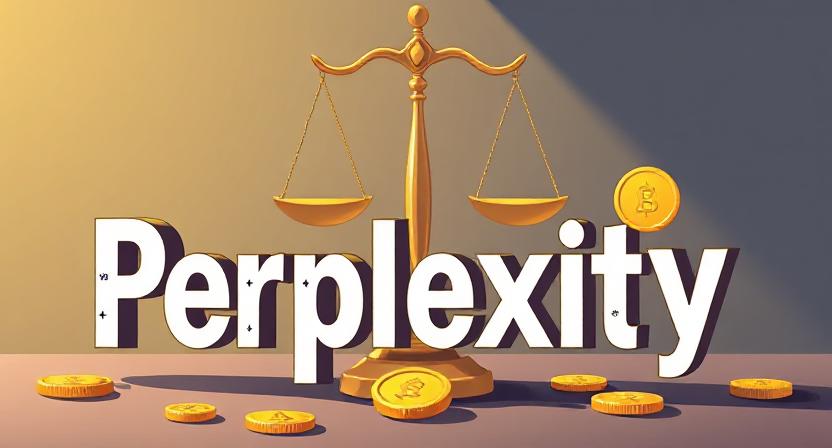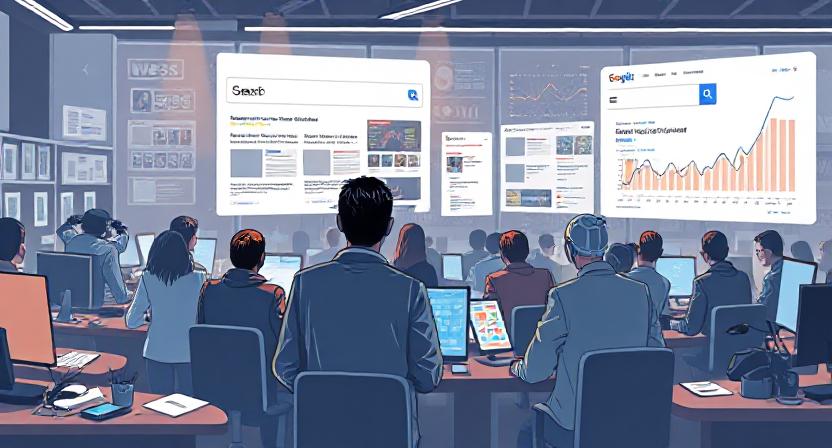Speculative Will Perplexity Media from AI Gains

Perplexity’s Revenue-Sharing Model A New Era for AI Search and Media Partnerships Artificial intelligence is rapidly reshaping the way we access information. Among the frontrunners...
⏱️ Estimated reading time: 5 min
Latest News
Perplexity’s Revenue-Sharing Model A New Era for AI Search and Media Partnerships
Artificial intelligence is rapidly reshaping the way we access information. Among the frontrunners in this transformation is Perplexity an AI-powered search engine that has gained significant attention in 2025. Unlike traditional search engines Perplexity blends generative AI with direct conversational responses providing users with answers rather than just links. However as the platform grows it faces the same challenges that have trailed other AI companies copyright disputes content ownership battles and the sustainability of journalism in the AI era.
To address these pressures Perplexity recently launched a new initiative to share its AI search revenue with media companies. This move could set the tone for future partnerships between AI platforms and publishers offering a potential path to balance innovation with fair compensation.
Why Perplexity Is Taking This Step
Perplexity’s revenue-sharing model didn’t emerge in a vacuum. Media outlets have increasingly voiced concern that AI-driven platforms scrape their content without adequate attribution or payment. Legal battles have mounted worldwide with publishers arguing that large language models LLMs rely heavily on their articles for training yet return little to no value to the original creators.
Perplexity known for its commitment to transparency and citation-based answers is now taking a proactive approach. Instead of waiting for regulatory crackdowns it is opting for collaboration. The new initiative proposes that revenue generated from AI search through subscriptions premium services or partnerships will be partially distributed to participating media outlets.
This aligns with Perplexity’s brand positioning as a responsible AI search provider and could help it build long-term trust with both users and publishers.
How the Revenue-Sharing Model Works
While full details are still evolving, the framework revolves around a few key mechanisms:
- Attribution-Based Partnerships
Media outlets whose content is frequently cited by Perplexity’s AI answers will be eligible for revenue shares. This ensures that value flows back to original sources. - Subscription Revenue Pooling
Perplexity offers paid tiers with advanced features. A portion of this subscription revenue will go into a shared pool divided among partnered media companies based on usage data. - Ad-Revenue Opportunities
As Perplexity explores ethical advertising models publishers may also receive a cut of ad revenue linked to AI search queries referencing their content.
This approach mirrors some earlier experiments by Google and OpenAI but with a more publisher-friendly emphasis on transparency and traceable value distribution.
Legal and Market Pressures Driving Change
The timing of Perplexity’s move is not coincidental. In the past year lawsuits against AI companies have surged. High-profile publishers have accused AI platforms of copyright infringement and unauthorized data scraping. Governments in Europe the U.S. and Asia are drafting stricter AI regulations that demand licensing frameworks for training data.
By introducing a revenue-sharing model now Perplexity aims to position itself as a compliant and cooperative AI search engine differentiating itself from competitors that face ongoing litigation.
Moreover the market itself is pushing toward collaboration. Consumers want trustworthy information and publishers want recognition and revenue. Perplexity’s model attempts to bridge this divide by ensuring that AI’s growth doesn’t come at the cost of journalism’s decline.

Implications for Media Companies
For publishers this initiative could be a turning point. Media organizations have long struggled with how to adapt to the AI-driven search ecosystem. Many have feared that generative AI will erode web traffic by answering queries directly without requiring clicks.
Implications for the AI Search Industry
- A $42.5 million fund has been allocated to compensate publishers whose content is used in its AI-powered search and assistant responses via the Comet browser subscription service .
- Subscribers pay a $5 monthly fee for Comet Plus publishers receive 80% of that revenue while Perplexity retains 20% .
- Payouts are triggered when publisher content is:
- Shown in Comet search results
- Clicked through from the Comet browser, or
- Used by the AI assistant to fulfill user tasks Digiday
- Perplexity positions this move as a deliberate shift to align publisher interests with its own. Perplexity only succeeds if journalism succeeds says Jessica Chan head of publisher partnerships .
- This initiative arrives amid mounting legal and ethical pressure including lawsuits over content scraping and concerns about bypassing site filters e.g. allegations of stealth crawling .
Ethical Implications & Industry Impact
Could serve as a model for other AI search players like OpenAI Google Anthropic to explore more equitable revenue-sharing arrangements instead of strictly licensing or bypassing publishers .
Sets a new precedent for AI platforms by being among the first to compensate publishers based on actual usage rather than generic licensing deals.
Demonstrates a shift from exploitative content practices toward creating a win-win model where AI benefits both users and content creators .
- Standardization of licensing agreements between AI firms and publishers.
- Reduced legal risk for AI companies facing copyright challenges.
- Improved public perception, as users see AI not as exploitative but as collaborative.
This also raises questions about scalability. Smaller publishers may wonder how revenue distribution will work fairly while large media companies may push for higher shares. The balance will be delicate, but Perplexity’s willingness to start the conversation puts it ahead of the curve.
Challenges Ahead
While promising the model faces hurdles:
- Complex Revenue Distribution
Determining which publisher gets paid for which AI response could become a logistical nightmare without transparent tracking systems. - Global Licensing Differences
Laws vary across countries meaning Perplexity may need localized agreements. - Publisher Participation
Some media outlets may demand higher royalties or refuse to participate preferring litigation instead.
Despite these challenges the initiative shows that AI platforms and publishers can find common ground if both prioritize fairness and sustainability.
A Win-Win Future for AI and Journalism?
If executed well Perplexity’s revenue-sharing model could mark the beginning of a more symbiotic relationship between AI and media. Rather than AI being perceived as a threat it could become a partner in amplifying content and rewarding original creators.
Related Posts

AI 2026 Shift From Labs to Live Operations
January 2026 signals a pivotal moment in artificial intelligence, the transition from lab experiments to...
January 30, 2026

Adobe Acquires Semrush in $1.9B SEO Power Play
Adobe to Acquire Semrush for $1.9 Billion Adobe announced its agreement to acquire the search...
December 1, 2025

Kiki Startup Fined $152K for NYC Rental Violations
Subletting Startup Kiki Faces Consequences in NYC Auckland-founded Kiki Club, a peer-to-peer subletting startup, launched...
November 30, 2025
1 Comment
-
Devin Cremin
Your writing is like a breath of fresh air in the often stale world of online content. Your unique perspective and engaging style set you apart from the crowd. Thank you for sharing your talents with us.










Your writing is like a breath of fresh air in the often stale world of online content. Your unique perspective and engaging style set you apart from the crowd. Thank you for sharing your talents with us.